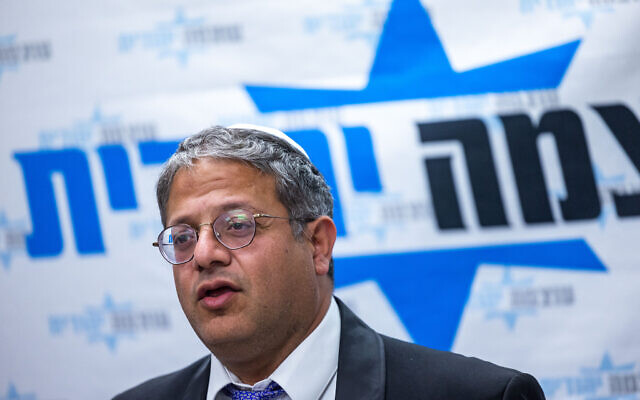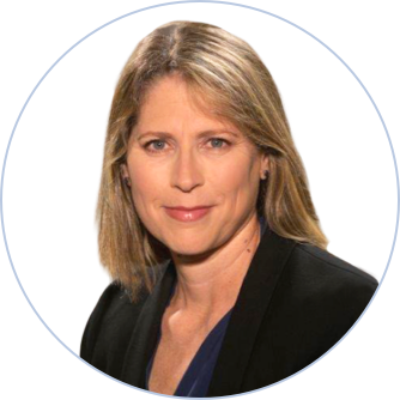Presumed incoming prime minister Benjamin Netanyahu insisted Thursday that he would retain ultimate decision-making power in the West Bank as part of an agreement with the far-right, before later conceding that he won’t be calling all the shots there.
Under their coalition deal, Netanyahu’s Likud party agreed to hand control over civilian affairs in the West Bank — such as settlement construction — to a new minister in the Defense Ministry from the Religious Zionism faction, with the post likely going to its leader Bezalel Smotrich.
In a separate deal with Otzma Yehudit, Likud approved transferring authority over Border Police in the West Bank from the IDF’s Central Central Command to a new national security ministry that the far-right party’s chief Itamar Ben Gvir is slated to head.
Speaking with Saudi broadcaster Al Arabiya on Thursday, Netanyahu was asked about these coalition deals and outgoing Defense Minister Benny Gantz’s warning that they will lead to a collapse of security in the West Bank.
“I didn’t hand over great powers in Judea, Samaria, the West Bank, not at all. In fact, all the decisions will be made by me and the defense minister, and that’s actually in the coalition agreement,” Netanyahu said. Judea and Samaria are the Biblical names for the territory.
Following the interview, however, Likud issued a “clarification” saying that Netanyahu was referring to “the security powers that will be in his and the defense minister’s hands,” and not to the agreement with Religious Zionism on the Civil Administration, which is one of two Defense Ministry bodies the far-right party is set to gain control over.
Religious Zionism party head MK Bezalel Smotrich after coalition talks with Shas chairman Aryeh Deri and Likud head Benjamin Netanyahu, outside a hotel in Jerusalem, December 5, 2022. (Yonatan Sindel/Flash90)
Netanyahu has not yet tapped a Likud member as next defense minister, though it is expected to be MK Yoav Gallant, a retired IDF general.
The Likud statement added that decisions at the Civil Administration “will be made in coordination with the prime minister, as is written in the coalition agreement.”
It was not clear what prompted the statement from Likud.
Outgoing Prime Minister Yair Lapid bashed Netanyahu over the apparent backpedal.
“Netanyahu in English: Only I determine [policy]! Netanyahu in Hebrew: Sorry Smotrich, I didn’t mean it,” Lapid wrote on Twitter. “Netanyahu is weak. A junior partner in the government.”
The Likud leader’s remarks to Al Arabiya followed an interview he gave to NPR in which he similarly insisted that he will be fully in charge of the new government, when pressed on powers that Ben Gvir is expected to receive.
“Coalitions make interesting bedfellows,” Netanyahu said of his future partners. “They are joining me. I’m not joining them.”
He also defended handing Ben Gvir control of the police force as well as Border Police in a controversial expanded role.

Otzma Yehudit party leader Itamar Ben Gvir speaks during a faction meeting at the Knesset in Jerusalem, December 12, 2022. (Yonatan Sindel/Flash90)ben g
The interviews came as Netanyahu works to finalize his government ahead of a December 21 deadline. Along with Likud and several far-right parties, the expected new coalition will include a pair of ultra-Orthodox factions. Together the bloc won a majority of Knesset seats in the November 1 election.

